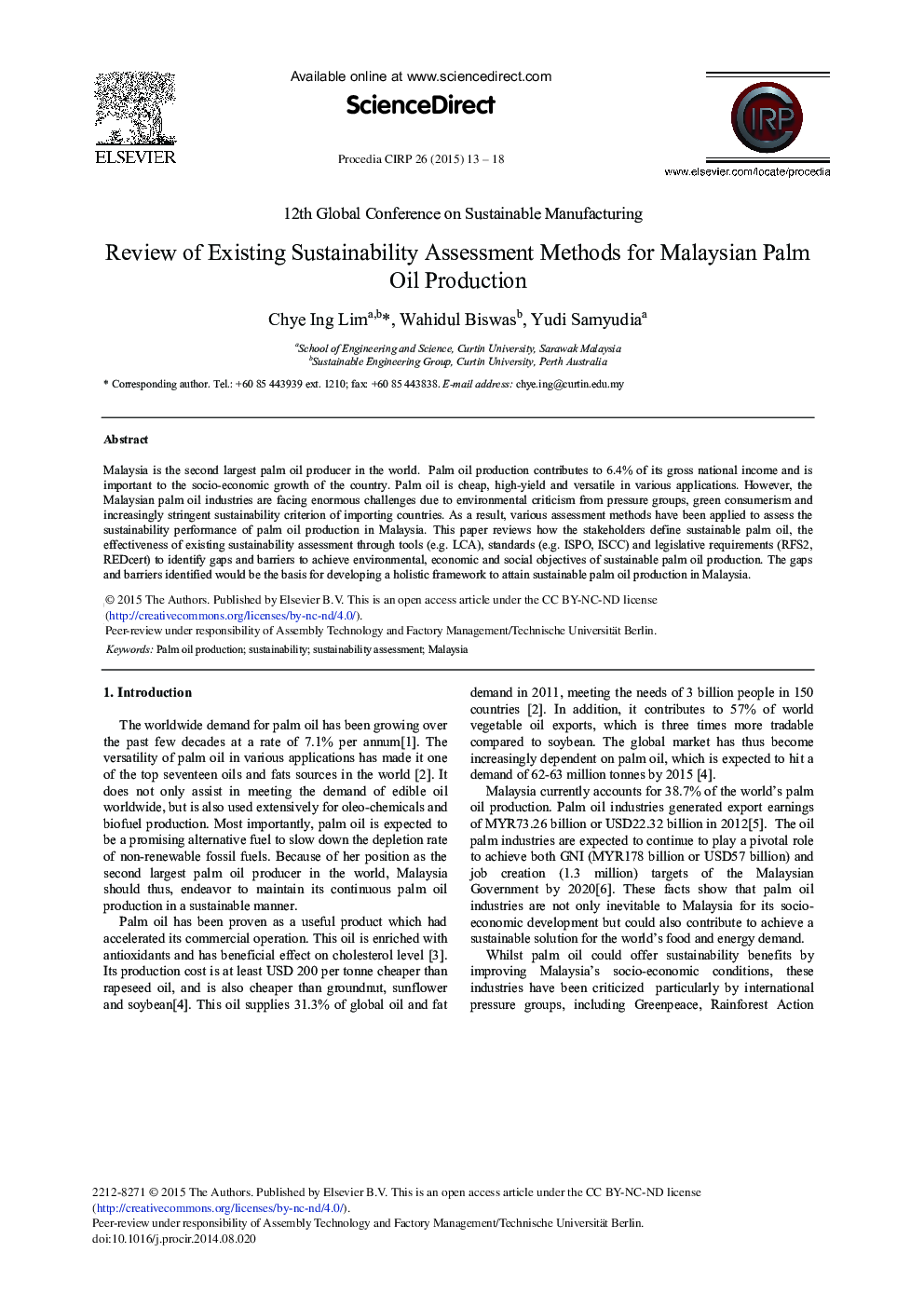| Article ID | Journal | Published Year | Pages | File Type |
|---|---|---|---|---|
| 1699892 | Procedia CIRP | 2015 | 6 Pages |
Malaysia is the second largest palm oil producer in the world. Palm oil production contributes to 6.4% of its gross national income and is important to the socio-economic growth of the country. Palm oil is cheap, high-yield and versatile in various applications. However, the Malaysian palm oil industries are facing enormous challenges due to environmental criticism from pressure groups, green consumerism and increasingly stringent sustainability criterion of importing countries. As a result, various assessment methods have been applied to assess the sustainability performance of palm oil production in Malaysia. This paper reviews how the stakeholders define sustainable palm oil, the effectiveness of existing sustainability assessment through tools (e.g. LCA), standards (e.g. ISPO, ISCC) and legislative requirements (RFS2, REDcert) to identify gaps and barriers to achieve environmental, economic and social objectives of sustainable palm oil production. The gaps and barriers identified would be the basis for developing a holistic framework to attain sustainable palm oil production in Malaysia.
